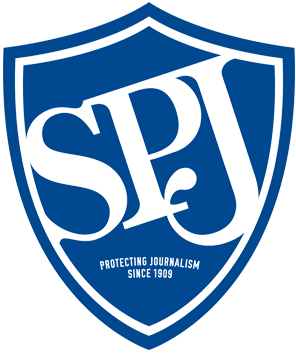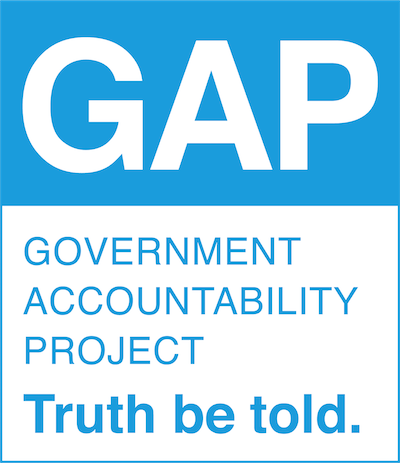The Whistleblower Project


– Introduction
– A Call to Action: Whistleblower Protection Legislation
If passed, these laws would help improve protection for whistleblowers.
Whistleblower Basics
– The Law and Whistleblowing
Deciphering the laws dealing with whistleblowing is complicated, but we hope this will help.
– Whistleblowers and Retaliation
Those who expose wrongdoing can face job loss, lawsuits or even prison.
– Leaking vs. Whistleblowing
Can you spot the difference between a leaker and a whistleblower? It may be trickier than you think.
– Nine Organizations That Work With and Help Whistleblowers
Best Practices for Journalists
– Source Protection and Anonymity for Whistleblowers
In political journalism, there’s a debate over allowing sources to talk to you off the record, in order to keep the access pipeline flowing. Anonymity and the ethics of it can also be complicated in situations beyond scoring political points.
– Whistleblowers and Reporters: Trust
Here are some best practices to follow when working with a whistleblower on a story.
– Technology Can Help Whistleblowers Communicate Anonymously
The ways that reporters and whistleblowers communicate is evolving. The introduction of secure communications has become necessary as journalists try to protect their sources, all the while trying to guarantee the information is secure.
– Anonymity: Not Always the Possible, Nor Always the Best, Strategy
Many whistleblowers want to disclose information about trouble in their workplaces while maintaining their anonymity. However, the vast majority of whistleblowers — more than 95 percent — try to solve their problems internally first.
– When Working with Whistleblowers, Same Ethical Journalism Principles Apply
Government Accountability Project’s “Working with Whistleblowers: A Guide for Journalists” details best practices for working with whistleblowers.
Voices
– Kathryn Foxhall: Good whistleblowing simply needs free speech
During the last 25 years it’s become an accepted norm for government, business, nonprofits and other organizations to prohibit employees to ever communicate with journalists without notifying and being overseen by the authorities, often public information officers. The restrictions are intense, highly effective censorship. The Society of Professional Journalists has made opposing them a priority.
– Jesselyn Radack: Challenges in Defending National Security Whistleblowers
War crimes, mass surveillance, torture: some of the biggest stories in modern history relied on whistleblowers in national security and intelligence agencies. They came forward at great risk to expose the truth.
– Nick Schwellenbach: The Modern Politics of American Whistleblowing
Insiders Valued More Highly in U.S. Society, But Still Face Perils.
 In 2005, Rick Piltz, a senior associate in the U.S. Global Change Research Program, blew the whistle on the George W. Bush administration's improper editing and censorship of reports on global warming.
Get the full details of Rick's story, along with 24 other times whistleblowers changed history.
In 2005, Rick Piltz, a senior associate in the U.S. Global Change Research Program, blew the whistle on the George W. Bush administration's improper editing and censorship of reports on global warming.
Get the full details of Rick's story, along with 24 other times whistleblowers changed history.
Features
– Mary Willingham: An Attempt To Make The College Athletic System Better For Athletes
Mary Willingham talks about why she spoke out about the treatment of college athletes at North Carolina and why — despite death threats from college sports enthusiasts — she would do it again.
– Megan Wood: Reporting with Purpose
Megan Wood talks about why she looked into San Diego Christian College’s missing $20 million in expenses and how whistleblowers make a difference in their communities.
– Richard Bowen: Blowing the Whistle on Defective Mortgages
While evaluating $90 billion of mortgages Citigroup was buying from Countrywide and other lenders, former Citigroup vice president Richard Bowen tried to warn company leaders and board members about the rise in defective mortgages. In 2010 he testified before the Financial Crisis Inquiry Commission. Here, in Bowen’s words, is what happened next.
– Craig Watts: Typical American Farmer Risks Career to Reveal Inhumane Conditions at Chicken Farms
Craig Watts was a typical American farmer with three kids, two dogs, and a barn full of chickens. That all changed though when he decided to show the public the conditions chickens, sold by Perdue farms, were being raised in.
Credits
Meet the Project Team
Several pieces of legislation needed to improve protections for both whistleblowers and journalists are at various stages of development -- some are still being drafted, and others have been introduced.
Below are a few priorities.
Status: Pending in the House Judiciary Committee
The latest shield law bill, sponsored by Reps. Jamie Raskin (D-Maryland) and Jim Jordan (R-Texas), would provide a degree of protection for journalists and whistleblowers. Privilege would not be absolute, with exclusion for national security. Currently 49 states and the District of Columbia have a shield law, either by statute or case law; this bill would provide protection at the federal level for the first time.
Status: In drafting stage; not introduced at this time
This legislation is necessary to achieve three cornerstones left for the Whistleblower Protection Enhancement Act to achieve its mandate — access to federal court jury trials to take the politics out of high-stakes cases; temporary relief to neutralize multi-year delays; and protection against retaliatory investigations to prevent criminal referrals not covered by the WPA.
Status: In drafting stage; not introduced at this time
This proposal would update the Inspector General Empowerment Act of 2016 by closing the oversight accountability loophole so that the Office of Special Counsel can order investigations of IGs.
Status: In drafting stage; not introduced at this time
This act is a new law for corporate whistleblowers. Tom Devine, legal director of the Government Accountability Project, is drafting a consolidation of 22 corporate whistleblower laws, enforced by the Department of Labor, that would provide consistent procedures and conform to best practices. The proposal would upgrade laws passed during the 1970s, 1980s and 1990s.
Status: In drafting stage; not introduced at this time
This legislation would upgrade the Presidential Policy Directive 19 whistleblower rights for intelligence community employees by creating structural autonomy for the whistleblower unit with the Office of Director of National Intelligence (ODNI), Office of Inspector General and restoring Whistleblower Protection Act burdens of proof in security clearance cases.
Status: In drafting stage; not introduced at this time
The Senate’s sexual harassment reform bill seeks whistleblower protections for congressional staff. Sen. Chuck Grassley (R-Iowa) is leading the effort. For the past two decades, the Office of Compliance has recommended on 10 separate occasions the establishment of whistleblower protections for congressional staff reflect protections available to federal employees under the Whistleblower Protection Act. Consistently, bipartisan proposals by leadership of the Senate Judiciary Committee and the Senate Whistleblower Protection Caucus (S. 633) and in the House of Representatives (H.R. 4396, H.R. 4195) would amend the Congressional Accountability Act to apply executive branch whistleblower protections to legislative branch employees.